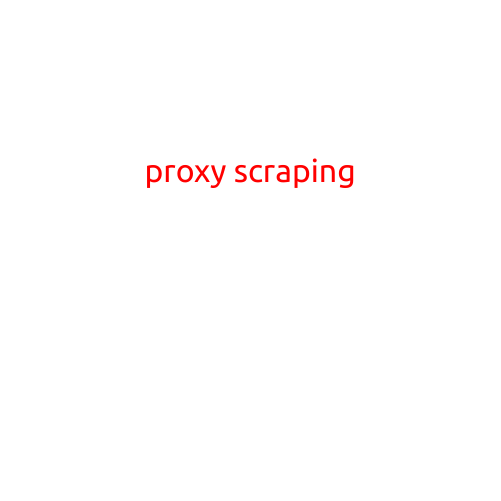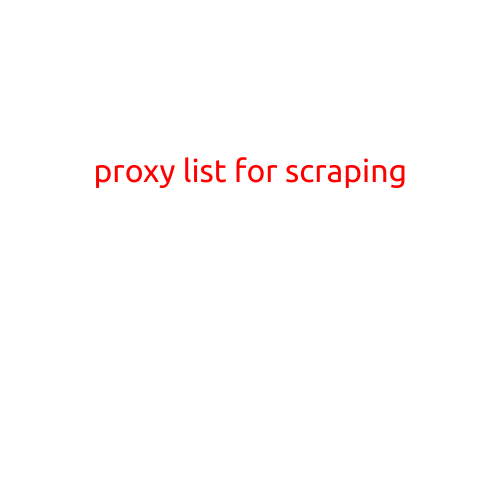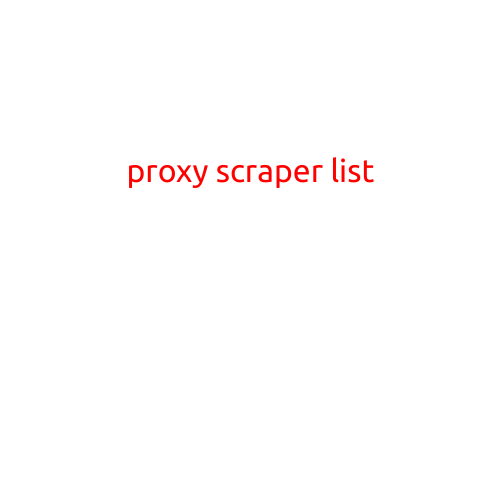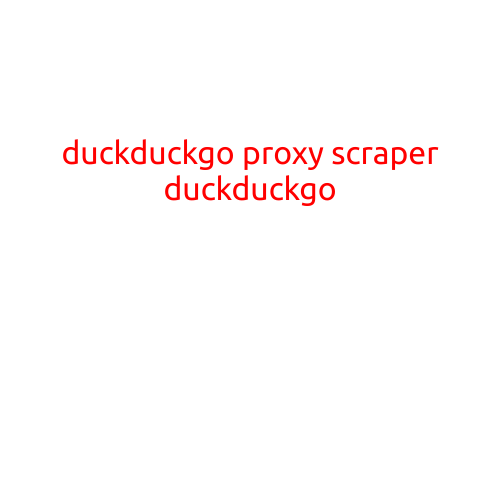
Proxy Scraping: A Comprehensive Guide to Hiding Your Identity Online
With the ever-growing importance of online data collection and analysis, proxy scraping has become a crucial technique for individuals and organizations seeking to mask their identities and stay anonymous while exploring the web. In this article, we’ll delve into the world of proxy scraping, exploring its benefits, types, and ethical considerations.
What is Proxy Scraping?
Proxy scraping is a process that involves using proxy servers to scrape data from websites, hiding your IP address and making it difficult for website administrators to track your online activities. A proxy server acts as an intermediary between your device and the website you’re accessing, forwarding your requests and responses while keeping your IP address private.
Types of Proxy Scraping
There are several types of proxy scraping, each with its own advantages and disadvantages:
- Rotating Proxies: These proxies dynamically change their IP addresses at set intervals, making it difficult to detect and track your activities.
- Permanent Proxies: These proxies retain the same IP address, ideal for repeated access to the same website.
- Public Proxies: Freely available proxy servers, often slowing down your internet connection and susceptible to abuse.
- Private Proxies: Paid, dedicated proxy servers offering faster speeds and increased security.
- Scraping Bots: Specialized software designed to automate web scraping, often using rotating or private proxies.
Benefits of Proxy Scraping
Proxy scraping offers numerous benefits, including:
- Data Collection: Gather data from websites without being detected or blocked.
- Anonymity: Protect your online identity and prevent website administrators from tracking your activities.
- SEO Auditing: Analyze websites without being detected, ensuring accurate search engine optimization (SEO) audits.
- Market Research: Gather data on competitors and market trends while maintaining anonymity.
Ethical Considerations
While proxy scraping can be an invaluable tool, it’s essential to consider the ethical implications of data collection:
- Be Transparent: Clearly state your intentions and disclose any data collection or scraping activities.
- Respect Website Terms: Ensure compliance with website terms of service and avoid overwhelming websites with requests.
- Secure Data: Store and handle collected data securely to prevent breaches and unauthorized access.
Security Risks
Proxy scraping, like any online activity, carries security risks:
- Malware Infections: Malicious proxy servers may infect your device with malware, compromising your system and data.
- Data Breaches: Leaked proxy server credentials or compromised infrastructure can expose your data to unauthorized access.
- Legal Troubles: Unauthorized proxy scraping can violate website terms, resulting in legal action.
Conclusion
Proxy scraping is a powerful tool for data collection and anonymity, offering numerous benefits for individuals and organizations. However, it’s essential to consider the ethical implications, security risks, and legal consequences of proxy scraping. By being transparent, respecting website terms, and prioritizing data security, you can safely and legally utilize proxy scraping for your online activities.





